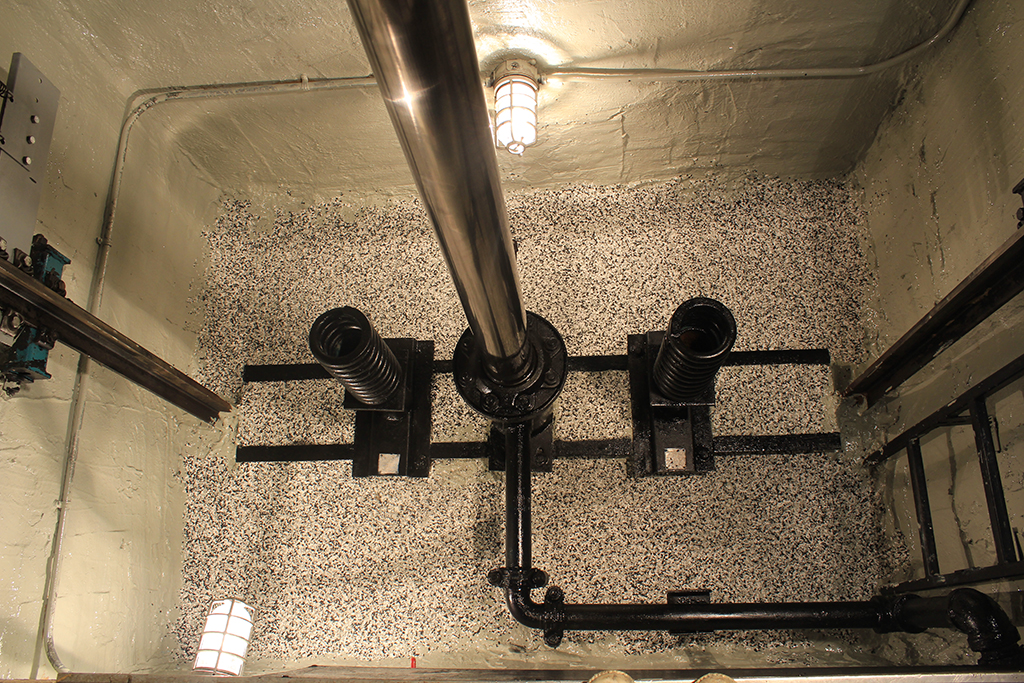 Select Elevator Waterproofing ™
Select Elevator Waterproofing ™
Select Elevator Waterproofing is a multifaceted company specializing in total elevator pit cleaning, waterproofing, and monitoring. Starting in 2014 and still successfully operating as Select Basement Waterproofing ™, we have seen thousands of water-related situations in residential and commercial spaces leading to mold, structural damage and health-related issues. Our team of highly experienced and trained technicians understand the necessity of having a clean, dry, healthy, and safe space to live and work in. This is even more important in a confined space such as in an elevator this is also way elevator waterproofing is important. The patented SAFE PIT® System is a revolutionary water abatement system developed to remove standing water and prevent additional water infiltration into an elevator/escalator pit enclosure. By utilizing CentAir Core™ technology, this system places all state-of-the-art mechanical and electrical components outside of the elevator hoistway and mechanical room. The SAFE PIT® System’s innovative design constantly monitors for water intrusion and removes the water from beneath the pit floor to an external discharge location. This system eliminates costly repairs due to water damage and facilitates a safer building and working environment. The SAFE PIT® System’s components can be adapted to meet local elevators and building codes, even the most recent and stringent ones.
Facts About New Jersey
Around 180 million years ago, during the Jurassic Period, New Jersey bordered North Africa. The pressure of the collision between North America and Africa gave rise to the Appalachian Mountains. Around 18,000 years ago, the Ice Age resulted in glaciers that reached New Jersey. As the glaciers retreated, they left behind Lake Passaic, as well as many rivers, swamps, and gorges.
New Jersey was originally settled by Native Americans, with the Lenni-Lenape being dominant at the time of contact. Scheyichbi is the Lenape name for the land that is now New Jersey. The Lenape were several autonomous groups that practiced maize agriculture in order to supplement their hunting and gathering in the region surrounding the Delaware River, the lower Hudson River, and western Long Island Sound. The Lenape society was divided into matrilinear clans that were based upon common female ancestors. These clans were organized into three distinct phratries identified by their animal sign: Turtle, Turkey, and Wolf. They first encountered the Dutch in the early 17th century, and their primary relationship with the Europeans was through fur trade.
New Jersey’s early colonial history was involved with that of New York (New Netherlands), of which it was a part. One year after the Dutch surrender to England in 1664, New Jersey was organized as an English colony under Gov. Philip Carteret.
In 1676 the colony was divided between Carteret and a company of English Quakers who had obtained the rights belonging to John, Lord Berkeley. New Jersey became a united crown colony in 1702, administered by the royal governor of New York. Finally, in 1738, New Jersey was separated from New York under its own royal governor, Lewis Morris. Because of its key location between New York City and Philadelphia, New Jersey saw much fighting during the American Revolution.
Today, New Jersey, an area of wide industrial diversification, is known as the Crossroads of the East. Products from over 20,000 manufacturers can be delivered overnight to 100 million people. The greatest single industry is chemicals; New Jersey is one of the foremost research centers in the world. Many large oil refineries are located in northern New Jersey. Other important manufactured items are pharmaceuticals, instruments, machinery, electrical goods, and apparel.
Productive farmland covers about 790,000 acres, 16.7% of New Jersey’s land area. The state ranks high in the production of almost all garden vegetables, as well as blueberries, cranberries, and peaches. Poultry, dairy products, and seafood are also top commodities.
Tourism is the second-largest industry in New Jersey. The state has numerous resort areas on 127 mi of Atlantic coastline. In 1977, New Jersey voters approved legislation allowing legalized casino gambling in Atlantic City. Points of interest include the Delaware Water Gap, the Edison National Historic Site in West Orange, Princeton University, Liberty State Park, Jersey City, and the N.J. State Aquarium in Camden.
The coast of New Jersey, Atlantic City to Hoboken, was battered by 2012’s Hurricane Sandy in late October. About 2.4 million people lost power, 34 people were killed, and some 72,000 homes or businesses were damaged or destroyed. The storm caused nearly $38 billion in damage.



 Select Elevator Waterproofing ™
Select Elevator Waterproofing ™